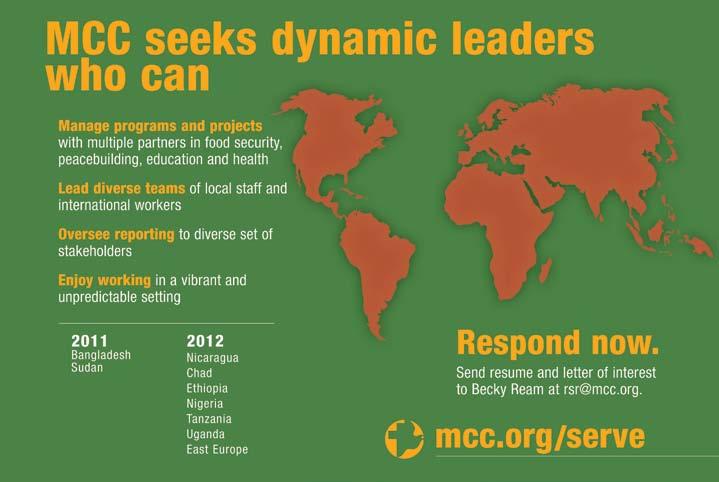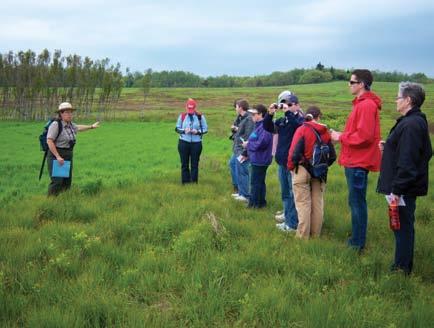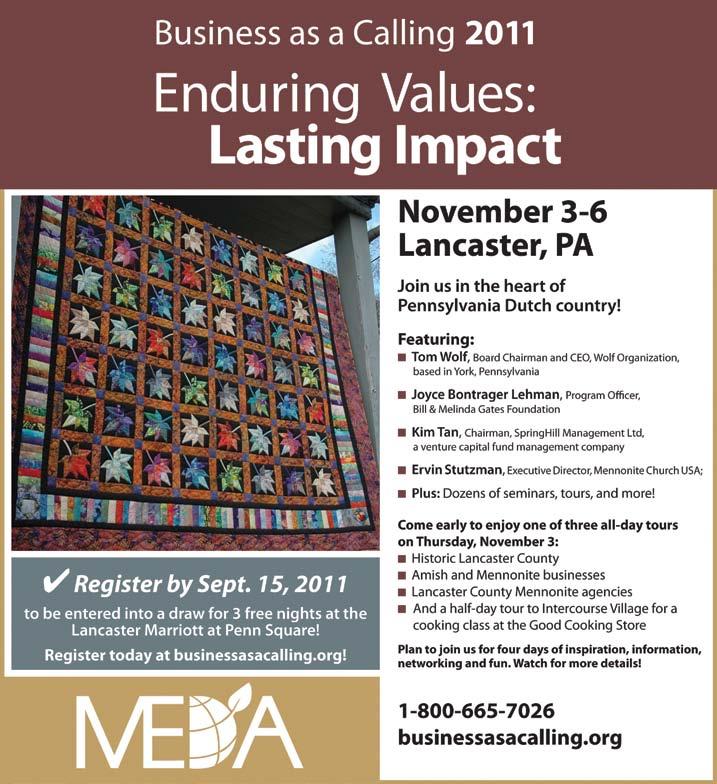
4 minute read
News
Violence seen as villain in cycle of global poverty
It’s no secret that violence is hazardous to health; less documented is how much it can damage a country’s economic well-being.
A new World Bank study shows violence is not only one cause of poverty but possibly the primary cause.
The 2011 World Development Report says peaceful countries are managing to improve economically while poverty is becoming more concentrated in countries with civil war, ethnic strife and organized crime. Add to that the affliction of poor government and a country becomes trapped in a persistent cycle of poverty and lawlessness, it says.
Countries with much political and criminal violence have poverty rates more than 20 percentage points higher than other countries. “Children living in fragile states are twice as likely to be undernourished and three times as likely to be out of school,” says World Bank President Robert B. Zoellick. “And the effects of violence in one area can spread to neighboring states and to other parts of the world, hurting development prospects of others and impeding economic prospects for entire regions.” The report lists strategic priorities for helping countries escape the trap of poverty. In addition to strengthening governance and civil society, it urges more attention to job creation, access to financial services to bring producers and markets together, and women’s economic empowerment programs.
The theme of youth employment comes up frequently in the report. While recognizing that organized violence has many causes (youth unemployment, ethnic/religious tensions, trafficking networks), it says citizen groups surveyed for the report cited unemployment as overwhelmingly the most important factor for recruitment into gangs and rebel movements. Of those who joined gangs, two fifths said they did so because they were unemployed. Only a tenth did so because they believed in a
cause. ◆
Student entrepreneurs win “big idea” contest
Four new Bluffton University graduates created an entrepreneurial venture that recently won the BIG Idea contest sponsored by the Bluffton Center for Entrepreneurs (BCE).
Remark Engineering, a design and marketing venture, was launched by Carter Sprunger, Bracton Eicher and Gregg Beitler, all from Berne, Ind., and Kenneth Miller, from Millersburg, Ohio. Sprunger, Remark’s chief operating officer, said he, Eicher and Miller were inspired by entrepreneurial stories they heard at last November’s MEDA conference in Calgary.
With support from the BCE, MEDA and Bluffton business faculty, the Remark founders ran a logo design competition for J. Bankert Bookkeeping in Bluffton. “Essentially, our business plan was to crowdsource logo designs from up-and-coming graphic design and marketing students, allowing us to present our client with more designs and ideas than individuals could come up with on their own” Sprunger says.
While the four graduates don’t foresee having enough time to keep the business going, “the important thing is that we all learned more than we could learn in any classroom,” he says. “It provided us all with some real-world experience in every area of business, from accounting and marketing to management.
“We even ended up turning a small profit,” thanks to the $540 Apple gift card they received for winning the BIG Idea contest.
BCE, a nonprofit business incubator, targets student initiative as an important generator of new business concepts and jobs. “These are individuals who aren’t waiting for opportunity to knock on their door,” says BCE board president Brendon Matthews. “We’re very impressed with the professionalism, energy and ingenuity coming from these university students.”
Sprunger, Eicher and Miller graduated from Bluffton in business, while Beitler, a partner in Remark, earned his bachelor’s degree in physics. ◆
MBA students head for great outdoors
Many business courses find students and instructors meeting in stuffy classrooms, but not this one. At least, not entirely.
Eastern Mennonite University, Harrisonburg, Va., offers a short-term summer course on “Stewardship, Innovation and Social Entrepreneurship” that includes field trips in the city of Staunton and in the Big Meadows area of Shenandoah National Park.
The course is led by Anthony Smith, associate professor of business and economics and co-director of EMU’s MBA program.
He says the course has three objectives: develop and apply a strategic framework for stewardship design principles in organizations; increase theoretical and practical understanding of the sources and types of innovation; and develop an understanding of social entrepreneurship and how businesses and nonprofit organizations apply these strategies.
The course combines field trips, classroom and online discussion and case studies with a systems approach to stewardship, innovation and social entrepreneurship.
“Organizations, and people who manage them, shape our world,” Smith says. “Those who understand and master innovation, stewardship and social entrepreneurship increase their effectiveness as civic and business leaders and as leaders in their own chosen field. That’s the intent of this special
Naturalist ranger Mara Meisel, left, interacts with last year’s EMU MBA students at Big Meadows in Shenandoah National Park.
course.” The field trips enable students to directly engage with entrepreneurs in the city of Staunton and to directly observe how stewardship design principles operate in natural ecologies and how those same principles also apply to human ecologies. ◆






